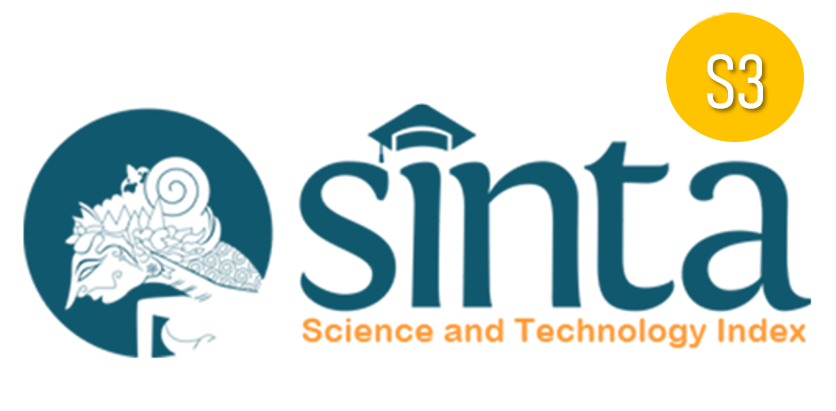Technological Platform for Implementing Students' Individual Educational Tracks
Abstract
Keywords
Full Text:
PDFReferences
Al Husaeni, D.F., and Nandiyanto, A.B.D. (2022). Bibliometric using VOSviewer with publish or perish (using google scholar data): From step-by-step processing for users to the practical examples in the analysis of digital learning articles in pre and post covid-19 pandemic. ASEAN Journal of Science and Engineering, 2(1), 19-46.
Ammatulloh, M.I., Permana, N., Firmansyah, R., Sa’adah, L.N., Izzatunnisa, Z.I., and Muthaqin, D.I. (2022). Strengthening character education of students through civics caring apps based on m-learning during the covid-19 pandemic. Indonesian Journal of Educational Research and Technology, 2(2), 87-96.
Antyukhova, E. A. (2020). Values of a successful person: A postmodern education in a post-industrial society. RUDN Journal of Political Science, 22(2), 290-304.
Behera, B., and Sethi, N. (2020). Analysis of household access to drinking water, sanitation, and waste disposal services in urban areas of Nepal. Utilities Policy, 62(2020), 100996.
Bonfá-Araujo, B., and Farias, E. S. D. (2020). Psychological assessment: Academic monitoring as a teaching-learning strategy. Psicologia Escolar e Educacional, 24, e208998.
Borisenkov, V. P. (2015). The quality of education and training problems of pedagogic personnel. Education and Science, 3(122), 4–17.
Eugenijus, L. (2023). Integrating blended learning and STEM education: Innovative approaches to promote interdisciplinary learning. Research and Advances in Education, 2(9), 20-36.
Glushchenko, V.V. (2023). Development of the theoretical foundations of sports activity (sports business) in post-industrial conditions. ASEAN Journal of Physical Education and Sport Science, 2(1), 39-60.
Glushchenko, V.V. (2025). Designing an inclusive employer-disability interaction mechanism in post-industrial conditions. ASEAN Journal of Community and Special Needs Education, 4(1), 11-16.
Huwaidi, F., Nandiyanto, A.B.D., and Muhammad, N. (2021). The urgency of online learning media during the Covid-19 pandemic at the vocational school in Indonesia. Indonesian Journal of Educational Research and Technology, 1(2), 35-40.
Jonker, H., März, V., and Voogt, J. (2020). Curriculum flexibility in a blended curriculum. Australasian Journal of Educational Technology, 36(1), 68-84.
Kochan, F. K., and Kunkel, R. C. (1998). The learning coalition: Professional development schools in partnership. Journal of Teacher Education, 5, 325–333.
Koldaev, V. D. (2013). Methodological aspects of the projecting the individual educational routes. Psychological Science and Education, 4, 15–21.
Konanchuk, D. S. (2013). EdTech: A new technological platform in education. University Management: Practice and Analysis, 5(87), 65–73.
Lawson, M. J., Vosniadou, S., Van Deur, P., Wyra, M., and Jeffries, D. (2019). Teachers’ and students’ belief systems about the self-regulation of learning. Educational Psychology Review, 31, 223-251.
Nasution, A.R., and Nandiyanto, A.B.D. (2021). Utilization of the google meet and quiziz applications in the assistance and strengthening process of online learning during the Covid-19 pandemic. Indonesian Journal of Educational Research and Technology, 1(2), 31-34.
Popova, O. S. (2014). Personal development of students as the basis for differential and typological approach to their psychological tracking. The World of Education – Education in the World, 2, 193–202.
Sangsawang, T. (2020). An instructional design for online learning in vocational education according to a self-regulated learning framework for problem solving during the covid-19 crisis. Indonesian Journal of Science and Technology, 5(2), 283-198.
Sukmawati, D., and Maryanti, R. (2022). Development of education and economic circulation in supporting local potential as community empowerment efforts amid the Covid-19 pandemic. Indonesian Journal of Multidiciplinary Research, 1(2), 235-250.
Tan, J. P. L., Choo, S. S., Kang, T., and Liem, G. A. D. (2017). Educating for twenty-first century competencies and future-ready learners: Research perspectives from Singapore. Asia Pacific Journal of Education, 37(4), 425-436.
Yurevich, A. V. (2008). Asymmetric future. Problems of Philosophy, 7, 76–89.
Zeer, E. F., and Popova, O. S. (2015). Psychological tracking of the individual educational trajectories of the students in vocational schools. Education and Scien
DOI: https://doi.org/10.17509/ijert.v5i1.82696
Refbacks
- There are currently no refbacks.
Copyright (c) 2025 Universitas Pendidikan Indonesia (UPI)

This work is licensed under a Creative Commons Attribution-ShareAlike 4.0 International License.







.png)




